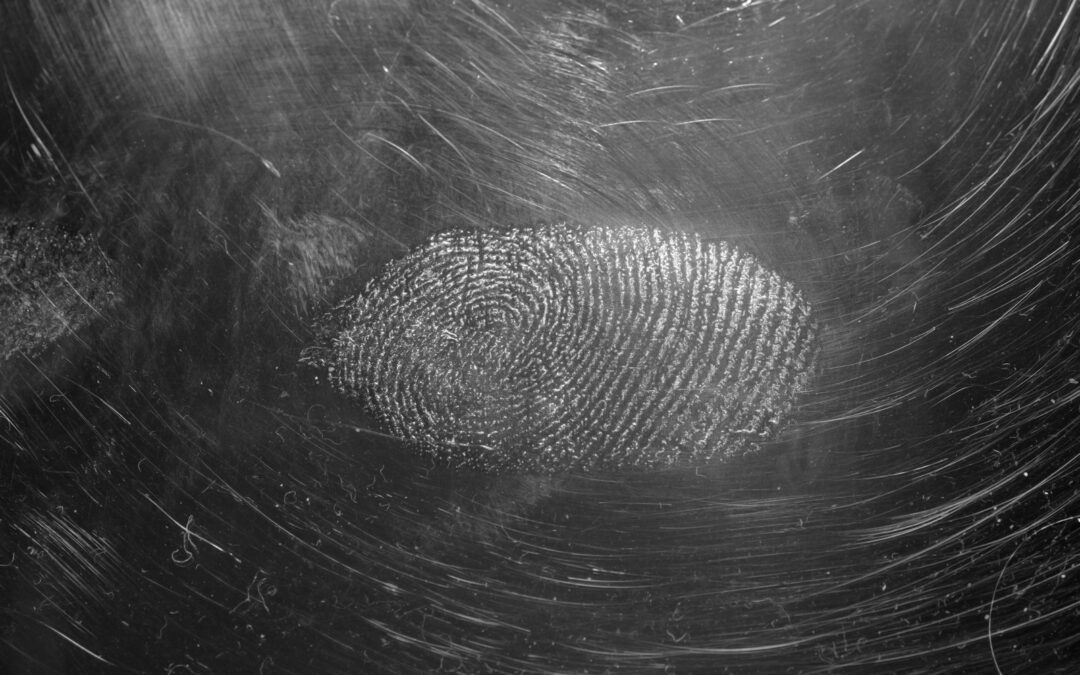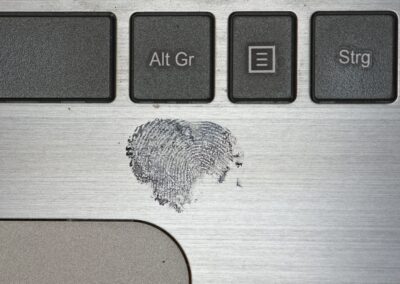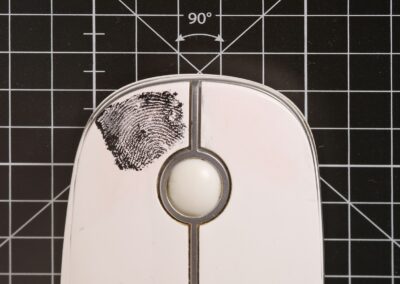Understanding the Critical Role of Chain of Custody in Digital Forensics
Preserving Integrity and Admissibility of Digital Evidence
The chain of custody in digital forensics is crucial for ensuring that digital evidence is handled and documented in a manner that preserves its integrity and admissibility in court. In Saudi Arabia and the UAE, where technological advancements and digital transformations are rapidly progressing, maintaining a robust chain of custody is vital for legal proceedings and business integrity. Digital evidence can include emails, documents, databases, and various other forms of electronic data, all of which must be meticulously managed to ensure their reliability.
In Saudi Arabia, the emphasis on Vision 2030 has led to increased reliance on digital platforms across various sectors. This reliance necessitates stringent measures to secure digital evidence, especially in legal and business environments. The chain of custody process involves documenting every step of evidence handling, from collection and storage to transfer and presentation in court. This documentation is essential to establish a clear, unbroken trail that demonstrates the evidence has not been altered or tampered with.
The UAE, known for its robust legal framework and technological innovation, places significant importance on the integrity of digital evidence. Law enforcement agencies and legal entities in Dubai and Abu Dhabi have adopted advanced technologies to track and manage the chain of custody. Utilizing technologies like Blockchain ensures that every action taken on digital evidence is recorded in a tamper-proof ledger, thereby enhancing the credibility and reliability of the evidence presented in legal disputes.
The Role of Advanced Technologies in Chain of Custody
Modern technologies such as Artificial Intelligence (AI) and Blockchain play a pivotal role in enhancing the chain of custody in digital forensics. In Riyadh, for instance, AI-driven tools are used to automate the documentation process, ensuring accuracy and consistency in recording evidence handling. These tools can analyze large volumes of data to identify and flag inconsistencies or potential breaches in the chain of custody, thereby preventing errors that could compromise the evidence.
Blockchain technology is particularly transformative in this domain. By providing a decentralized and immutable ledger, Blockchain ensures that each transaction related to the digital evidence is permanently recorded and cannot be altered. This level of security is crucial in legal contexts where the integrity of evidence is paramount. In Dubai, the integration of Blockchain into the legal system has streamlined the process of managing digital evidence, making it more transparent and reliable.
Furthermore, the metaverse and generative AI offer innovative solutions for training and simulating forensic scenarios. These technologies create immersive environments where forensic experts can practice handling digital evidence and managing the chain of custody in realistic settings. This continuous training helps improve the proficiency of professionals in maintaining the integrity of digital evidence, ensuring it remains admissible in court.
Leadership and Management Skills in Digital Forensics
Effective leadership and project management are critical to maintaining a robust chain of custody in digital forensics. Leaders in both Saudi Arabia and the UAE must be well-versed in the latest technological advancements and their applications in forensic science. They must also possess the strategic vision to implement these technologies effectively within their organizations.
In Saudi Arabia, leaders in the legal and forensic fields are driving initiatives to enhance the handling and documentation of digital evidence. This involves not only adopting advanced technologies but also fostering a culture of continuous improvement and vigilance. Training programs and workshops are regularly conducted to keep professionals updated on best practices and emerging trends in digital forensics.
The UAE, with its focus on innovation and excellence, emphasizes the importance of strong leadership in digital forensics. Project managers overseeing forensic investigations must coordinate efforts across multiple stakeholders, including law enforcement agencies, legal entities, and technology providers. This coordination ensures that all aspects of the chain of custody are meticulously managed, from evidence collection to court presentation.
Implementing Best Practices for Chain of Custody in Digital Forensics
Establishing Clear Protocols and Procedures
Establishing clear protocols and procedures is essential for maintaining the chain of custody in digital forensics. In both Saudi Arabia and the UAE, legal and forensic entities are developing comprehensive guidelines to ensure that digital evidence is handled consistently and securely. These protocols typically include steps for evidence collection, documentation, storage, and transfer, each designed to preserve the integrity of the evidence.
In Riyadh, for example, forensic experts are trained to follow stringent procedures for collecting digital evidence from various sources, such as computers, mobile devices, and cloud platforms. Each piece of evidence is meticulously documented, with detailed records of who collected it, when, and how it was stored. This documentation is crucial for establishing an unbroken chain of custody that can withstand legal scrutiny.
Similarly, in Dubai, the adoption of standardized procedures has significantly improved the management of digital evidence. Law enforcement agencies and forensic laboratories work together to ensure that evidence handling protocols are consistently followed. By implementing best practices and leveraging advanced technologies, Dubai is setting new standards in digital forensics, ensuring that digital evidence is both reliable and admissible in court.
Training and Continuous Improvement
Ongoing training and continuous improvement are vital for maintaining a robust chain of custody in digital forensics. In Saudi Arabia and the UAE, regular training programs and workshops are conducted to keep forensic professionals updated on the latest technologies and best practices. These training sessions cover various aspects of digital forensics, including evidence collection, documentation, and analysis.
In Saudi Arabia, the government and private sector collaborate to provide comprehensive training for forensic experts. This collaboration ensures that professionals are equipped with the skills and knowledge needed to handle digital evidence effectively. By fostering a culture of continuous learning, Saudi Arabia is enhancing its forensic capabilities and ensuring that its professionals are prepared to address emerging challenges in digital forensics.
The UAE, with its emphasis on innovation and excellence, also prioritizes continuous improvement in digital forensics. Training programs in Dubai and Abu Dhabi focus on the practical application of advanced technologies, such as AI and Blockchain, in managing the chain of custody. By staying ahead of technological advancements, the UAE ensures that its forensic professionals are equipped to handle the complexities of digital evidence in an ever-evolving landscape.
Leveraging Technology for Enhanced Forensic Capabilities
Leveraging technology is key to enhancing forensic capabilities and maintaining a robust chain of custody in digital forensics. In both Saudi Arabia and the UAE, the integration of modern technologies into forensic practices is transforming how digital evidence is managed and preserved.
Artificial Intelligence (AI) and Blockchain are two technologies that have significantly impacted digital forensics. In Riyadh, AI-driven tools are used to automate the documentation of evidence handling, ensuring accuracy and consistency. These tools can also analyze large datasets to identify potential breaches in the chain of custody, helping prevent errors that could compromise the integrity of the evidence.
Blockchain technology, with its decentralized and immutable ledger, offers a secure solution for managing digital evidence. In Dubai, the use of Blockchain in digital forensics has streamlined the process of tracking and verifying evidence, making it more transparent and reliable. This integration of technology not only enhances the credibility of digital evidence but also supports the development of more effective and targeted forensic strategies.
Conclusion: The Future of Digital Forensics in Saudi Arabia and the UAE
The chain of custody in digital forensics is critical for ensuring the integrity and admissibility of digital evidence in court. In Saudi Arabia and the UAE, the integration of advanced technologies such as AI and Blockchain is transforming how digital evidence is managed and preserved. Strong leadership, strategic project management, and a commitment to continuous improvement are key to the success of these initiatives.
As technological advancements continue to evolve, the integration of innovative solutions will further enhance forensic capabilities. By embracing these technologies and fostering a culture of collaboration and continuous learning, Saudi Arabia and the UAE are paving the way for a future where digital evidence is secure, reliable, and admissible in court. The ongoing investment in digital forensics ensures that these countries remain at the forefront of global innovation, ready to tackle any challenges that may arise.
#DigitalForensics #ChainOfCustody #AI #Blockchain #SaudiArabia #UAE #Leadership #ManagementSkills #ProjectManagement #ModernTechnology
























